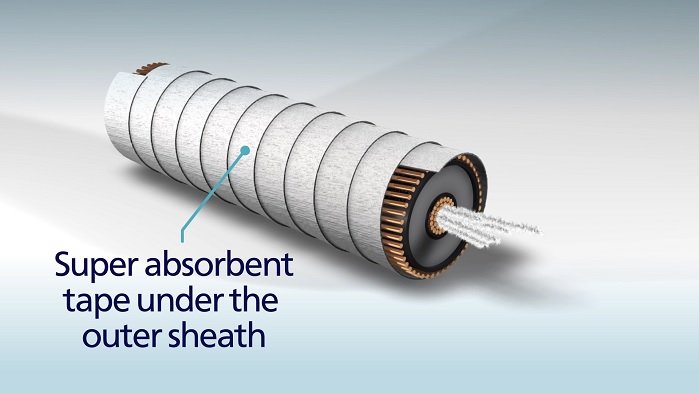
SAF innovations on display at ANEX
The manufacturer is now working to encourage stakeholders to consider the superabsorbent technology when manufacturing or specifying cables.

26th February 2018
Innovation in Textiles
|
Grimsby
The manufacturer of Super Absorbent Fibre (SAF), Technical Absorbents, is now working closely with its yarn spinning partners to raise further awareness of dry spun SAF yarns, help educate the industry about their benefits and ultimately encourage stakeholders to consider the superabsorbent technology when manufacturing or specifying cables.
SAF has been used in the cable industry, in spun yarn format, for a number of years. It has become established as a raw material for water-blocking applications – along with a number of other proven technologies.
Damaged cables can start to take on water. A SAF spun yarn will rapidly absorb the water at the point of damage and swell to form a water impermeable barrier, blocking further ingress. Such yarns are cost-effective, lightweight and the absorption rate and swell height can meet specification by selecting the most appropriate fibre grades/blends, the company reports.
“There are potential cost reductions to be made,” explained Paul Rushton, Commercial Director. “In some instances, it is possible to just use the one type of SAF spun yarn throughout the whole cable. As a result, manufacturers could make some significant savings on water-blocking raw materials and not have to stock-pile different products.”
The yarns are supplied on bobbins, easy to onward process, require fewer line stops and can be wrapped around or placed along the length of a cable in voids vulnerable to water penetration. As the SAF is spun with other staple fibres, the yarns have excellent absorbency profiles and shedding and dusting is limited.
“We are simply asking the cable industry to trial SAF spun yarns, either in conjunction with other water-blocking materials or alone. We can help supply samples and would be keen to talk to anyone interested in learning more,” added Mr Rushton.

Business intelligence for the fibre, textiles and apparel industries: technologies, innovations, markets, investments, trade policy, sourcing, strategy...
Find out more